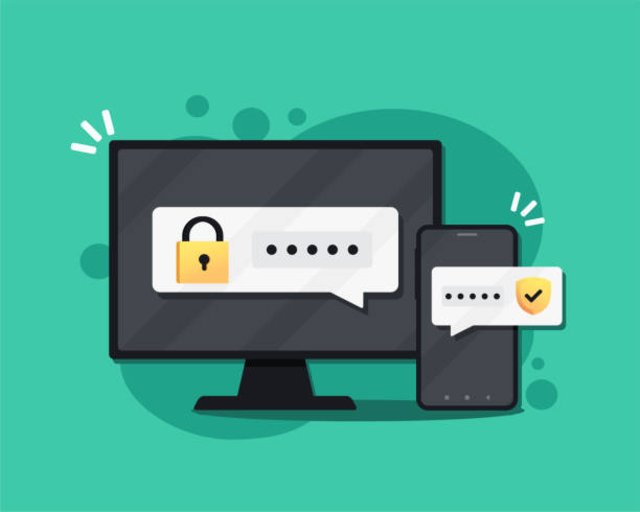The Ultimate Guide to Using a Password Generator for Stronger Passwords

In an era where cyber threats are increasingly sophisticated, the necessity of strong passwords cannot be overstated. Password generators serve as invaluable tools, employing advanced algorithms to create complex strings that enhance your security posture. However, understanding the nuances of these generators, including how to choose the right one and implement best practices, is essential for maximizing their effectiveness. As we explore the intricacies of password management, it becomes clear that not all generators are created equal, raising critical questions about your current approach to digital security.
Importance of Strong Passwords
Recognizing the vital role that strong passwords play in cybersecurity is essential for both individuals and organizations. A strong password serves as the first line of defense against unauthorized access and data breaches. Weak passwords, often characterized by predictable patterns or insufficient length, can easily be compromised by cybercriminals using advanced techniques such as brute force attacks. To mitigate these risks, employing a password generator can create robust, complex passwords that include a mix of uppercase letters, lowercase letters, numbers, and special characters. Utilizing a password generator not only enhances security but also simplifies the process of managing multiple strong passwords. Ultimately, the implementation of strong passwords is vital for safeguarding sensitive information and maintaining the integrity of digital systems.
How Password Generators Work
Password generator typically utilize algorithms to create complex passwords that meet specific security criteria. These algorithms often employ randomization techniques, generating strings of characters that include uppercase letters, lowercase letters, numbers, and special symbols. By adhering to customizable parameters, such as minimum length and character diversity, the generators enhance password strength.
Some advanced generators leverage cryptographic principles, ensuring that the passwords produced are not only unpredictable but also resistant to common attack vectors, such as brute force or dictionary attacks. Additionally, many password generators incorporate entropy calculations to assess randomness and strength, offering varying levels of complexity based on user requirements. Ultimately, these mechanisms work collectively to produce robust passwords that greatly improve security posture.
Benefits of Using a Password Generator

While many users may underestimate the importance of strong passwords, utilizing a password generator offers several compelling benefits that enhance overall security. First, password generators create complex, random strings that greatly reduce the likelihood of successful brute-force attacks. By incorporating a diverse array of characters, including uppercase, lowercase, numerals, and symbols, these tools facilitate the creation of passwords that are not only difficult to guess but also comply with stringent security policies. Additionally, password generators eliminate the cognitive load associated with remembering multiple complex passwords, thereby encouraging users to adopt unique passwords for different accounts. This practice minimizes the risk of credential stuffing attacks, where compromised passwords are reused across multiple sites, thereby bolstering individual and organizational cybersecurity.
Choosing the Right Password Generator
When selecting a password generator, several critical factors must be considered to guarantee ideal security and usability. To begin with, the generator should employ robust algorithms, such as those based on cryptographic standards, to assure randomness and unpredictability of generated passwords. In addition, user customization options are essential; a good generator should allow users to define password length, complexity, and character types. Additionally, the generator’s reputation and security track record should be scrutinized; choose tools that are open-source or have undergone third-party security audits. Furthermore, verify compatibility with various platforms and devices, enhancing accessibility. Finally, consider the generator’s user interface; it should be intuitive, facilitating ease of use without compromising security. These factors collectively optimize password strength and user experience.
Best Practices for Strong Passwords
Utilizing a reliable password generator is only the first step in establishing a robust security framework; implementing best practices for strong passwords is equally vital. Strong passwords should be at least 12-16 characters long and include a mix of upper and lower case letters, numbers, and special characters. Avoid using easily guessable information such as birthdays or common words. Additionally, employ unique passwords for different accounts to mitigate risks associated with data breaches. Regularly updating passwords and using two-factor authentication can further enhance security. It is important to store passwords securely, preferably using a reputable password manager, to prevent unauthorized access. Adhering to these best practices guarantees a higher level of protection against cyber threats.
Conclusion
To sum up, the utilization of password generators serves as an essential strategy for enhancing cybersecurity through the creation of complex and unique passwords. By employing advanced algorithms, these tools mitigate vulnerabilities associated with weak passwords. Selecting a reliable password generator, alongside adhering to best practices, is critical for maintaining robust security across multiple accounts. Ultimately, the implementation of sophisticated password management techniques fosters a stronger defense against potential threats, reinforcing the overall integrity of sensitive information.
Коментарі
Дописати коментар